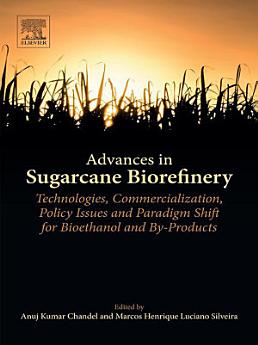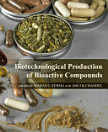Advances in Sugarcane Biorefinery: Technologies, Commercialization, Policy Issues and Paradigm Shift for Bioethanol and By-Products
About this ebook
About the author
Dr. Anuj K. Chandel is a Professor in the Department of Biotechnology, Engineering School of Lorena, University of São Paulo, Brazil. He has over 23 years of research experience working on process optimization and large-scale production of industrial enzymes and vaccine particles, biofuels, and membrane-based separation of fats, proteins, and viruses. He previously worked at the University of São Paulo, Brazil, the University of Stellenbosch, South Africa, and the University of Arkansas, Fayetteville, USA. He has also worked Dalas Biotech Ltd, Bhiwadi, Rajasthan; Celestial Biolabs Ltd, Hyderabad, and Centro de Tecnologia Canaviera-Piracicaba, Brazil, on large-scale production of industrial enzymes and cellulosic ethanol, for about 7 years. Dr. Chandel has published 125 articles in peer-reviewed journals and 56 book chapters, has edited 15 books, and holds one Brazilian patent. His primary research interests is to develop sustainable processes for bioconversion of lignocellulosic biomass into renewable fuels and biochemicals by bridging the gap between research laboratories and industries.
Marcos Henrique Luciano Silveira have both undergraduate (B.Sc.) and post-graduate (M.Sc. and Ph.D.) degrees in Chemistry. He earned the PhD from Federal University of Paraná – UFPR (Curitiba, Brazil) in 2014 working on the development of new pretreatment technologies of sugarcane bagasse for clean sugars production. Dr. Silveira has also worked for one year at Technical Research Center of Finland – VTT (Finland) as visiting scientist to investigate the mechanism of biomass hydrolysis. For the scientific outcome, recently he won the National Award from VALE-CAPES, Brazilian Government funding agency in Science and Sustainability. He also worked as a post-doctoral researcher at Chemical Engineering Department of UFPR on applied statistics in process optimization. He has published 13 papers and 3 book chapters. Currently, he is working at the Sugarcane Technology Center (CTC-Piracicaba) as a Scientific Researcher to investigate the mechanism of enzymatic degradations of cellulose for the integrated production of sugars and platform chemicals.






